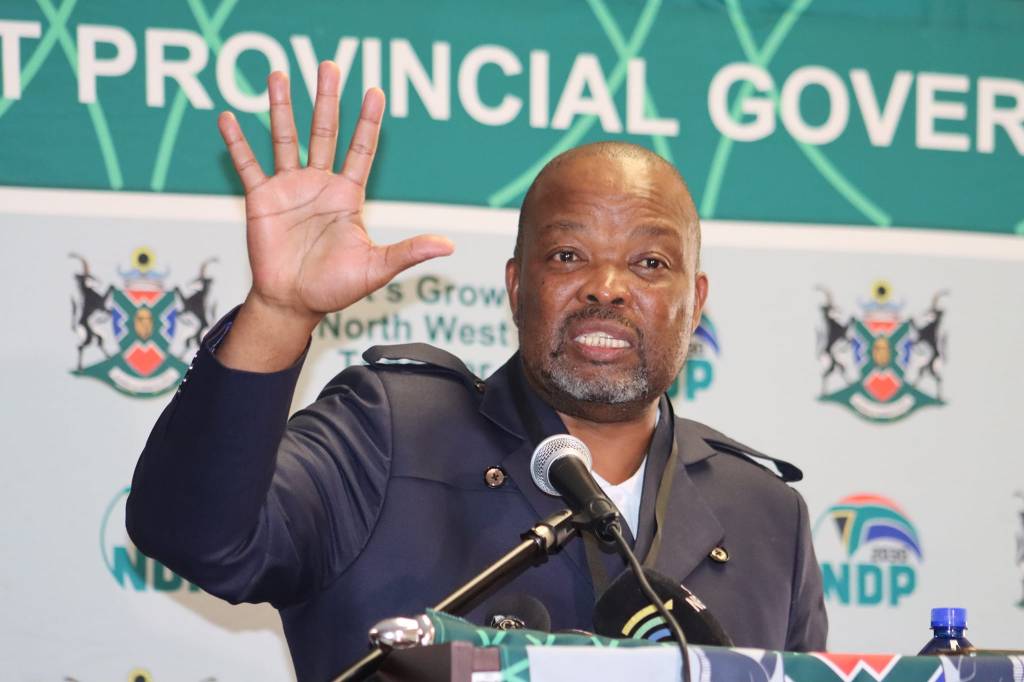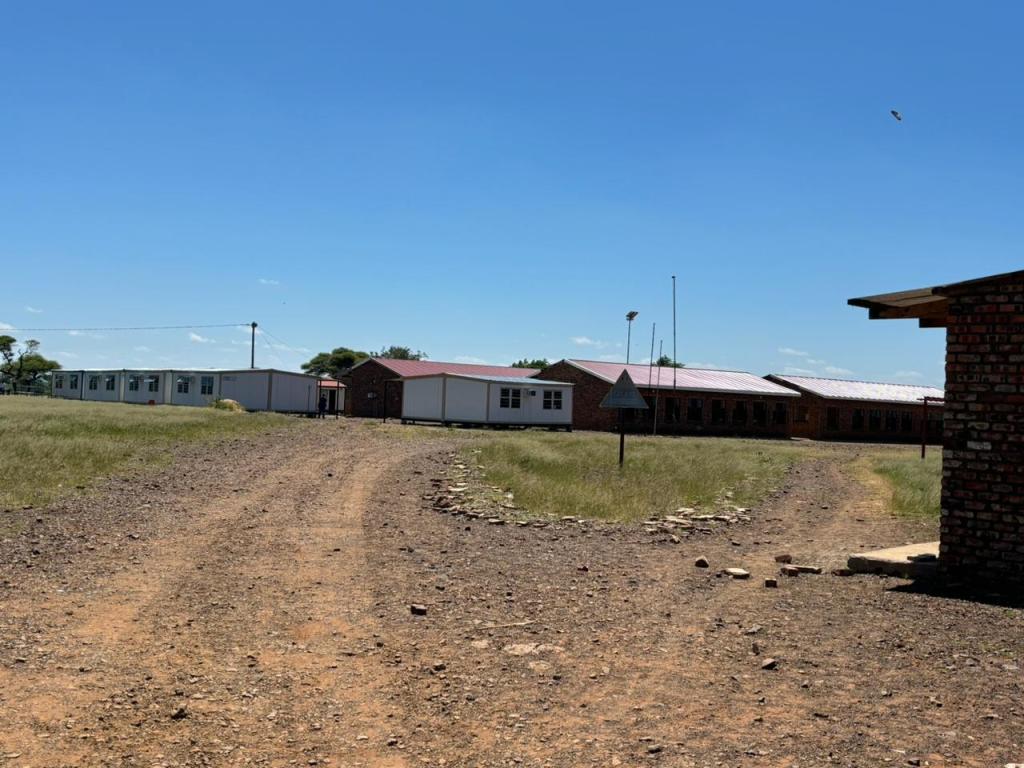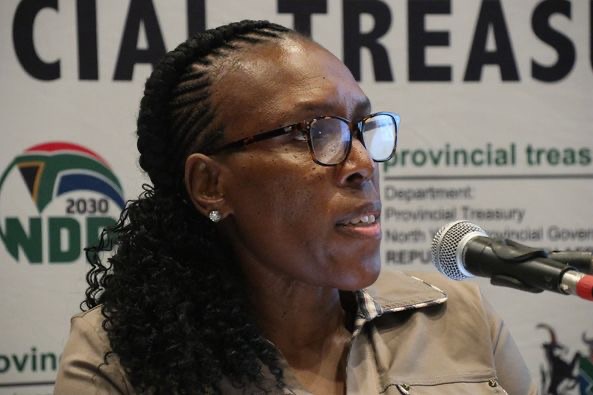
Picture: North West MEC for Cooperative Governance, Human Settlement and Traditional Affairs, Nono Maloyi
By OBAKENG MAJE
The North West Department of Human Settlement is cash-strapped. The startling revelations were confirmed by the North West MEC for Cooperative Governance, Human Settlements and Traditional Affairs (COGHSTA), Nono Maloyi during exclusive interviews with Taung DailyNews in Rustenburg on Sunday.
Maloyi, who defended the decision said, his department has run out of cash and they have already made an application to the Development Bank of Southern Africa (DBSA) for a R50 billion load front. He further said the money will be used to complete various projects that were meant for the next three years.
“I am the MEC for that department and it has run out of cash. What is it that we could do, if there is no money? Let me explain front loading and the recommendations made by the commission at the ANC PEC Lekgotla.
“The recommendations from the structure is that, infrastructure departments must also apply for front loading from DBSA, which is owned by the national treasury. The DBSA is going to give us money, which we would have spent in three years,” added Maloyi.
He said people out there are suffering and there are many challenges of service delivery. Maloyi said however, they cannot fold their arms, while there are options.
“So, we have already sent our application. The Human Settlement Department in Northern Cape has applied the same method. They applied for a R1billion, which they have received. Now, that department is implementing projects of more than 4000 (housing units) and this is what we want to do in the North West,” he said.
The Democratic Alliance (DA) caucus leader in the North West Provincial Legislature (NWPL), Freddy Sonakile said, this is absurd.
“This is not shocking because I have it on good authority that, the department had over committed itself on projects, of which most of them are still incomplete at this stage. Tenders were being dished out like nobody’s business leading to it being unable to complete most of them.
‘We will monitor this planned loan of billions as it will mean that, the department will be committing government to a debt that will take years to service. The treasury will also have to be roped in to explain the rationale behind. As the DA, we will not agree to this nonsense,” he said.
Meanwhile, the Economic Freedom Fighters (EFF) provincial secretary, Papiki Bauile shared the same sentiments. Babuile alleged that, the department under Maloyi stewardship does not have the interest of the communities at hearts.
“They do not care about service delivery, but this is their way of looting. They could not manage or monitor the current budget, but they apply for R50 billion? The ANC has realised that it is losing power and after the national elections, it would not be in charge.
“So, they want to hand over those tenders to their cronies and get kickbacks in the process. However, we will ensure that, whoever is involved in any form of corruption at the department, faces the mighty of the law,” he said.



